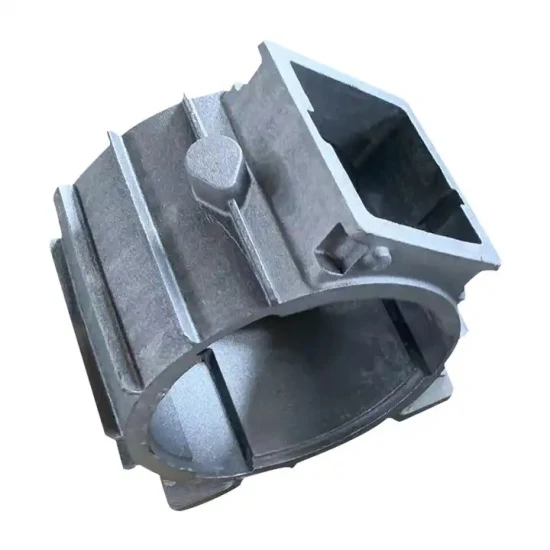Stahl Specialty Company - Truths
Stahl Specialty Company - Truths
Blog Article
Some Known Details About Stahl Specialty Company
Table of ContentsThe smart Trick of Stahl Specialty Company That Nobody is DiscussingThe Buzz on Stahl Specialty CompanyNot known Incorrect Statements About Stahl Specialty Company Unknown Facts About Stahl Specialty CompanyAll About Stahl Specialty Company
Chemical Contrast of Cast Light weight aluminum Alloys Silicon advertises castability by minimizing the alloy's melting temperature level and boosting fluidity throughout spreading. In addition, silicon contributes to the alloy's stamina and wear resistance, making it important in applications where resilience is critical, such as auto components and engine parts.It additionally enhances the machinability of the alloy, making it easier to refine into finished items. This way, iron adds to the overall workability of aluminum alloys. Copper raises electrical conductivity, making it useful in electrical applications. It also enhances rust resistance and includes in the alloy's general strength.
Manganese adds to the toughness of light weight aluminum alloys and boosts workability. Magnesium is a lightweight element that supplies toughness and effect resistance to light weight aluminum alloys.
It enables the manufacturing of light-weight parts with outstanding mechanical properties. Zinc improves the castability of aluminum alloys and assists control the solidification procedure during spreading. It improves the alloy's stamina and solidity. It is commonly discovered in applications where detailed forms and fine details are needed, such as decorative castings and particular automotive parts.
An Unbiased View of Stahl Specialty Company
Because aluminum-silicon alloys have good spreading residential or commercial properties, high gas homes, basic processes, and excellent rust resistance, aluminum-silicon alloys are most commonly utilized in the die-casting industry in your home and abroad. At the same time, aluminum-silicon alloys are also reasonably early and commonly recognized alloys developed and made use of in die-casting. After continual research study and renovation, many of the existing worldwide mainstream aluminum-silicon alloys have actually been completed and are absolutely nothing even more than A356, A360, A380, ADC12, B390, and A413.
The key thermal conductivity, tensile strength, return toughness, and elongation vary. Amongst the above alloys, A356 has the greatest thermal conductivity, and A380 and ADC12 have the least expensive.

A Biased View of Stahl Specialty Company
In precision spreading, 6063 is fit for applications where detailed geometries and high-grade surface area finishes are vital. Instances include telecommunication enclosures, where the alloy's superior formability enables streamlined and visually pleasing designs while maintaining architectural integrity. In the Lighting Solutions sector, precision-cast 6063 elements create stylish and effective lighting fixtures that call for intricate shapes and good thermal performance.
(https://www.sooperarticles.com/authors/796261/frances-howard.html)
It results in a finer surface coating and better corrosion resistance in A360. The A360 shows premium prolongation, making it excellent for complicated and thin-walled parts. In precision spreading applications, A360 is appropriate for sectors such as Consumer Electronic Devices, Telecommunication, and Power Tools. aluminum metal casting. Its improved fluidity allows for detailed, high-precision parts like mobile phone casings and communication tool real estates.

In precision spreading, light weight aluminum 413 beams in the Customer Electronics and Power Equipment sectors. This alloy's exceptional corrosion resistance makes it an outstanding selection for outside applications, guaranteeing resilient, sturdy items in the mentioned industries.
Getting My Stahl Specialty Company To Work
The light weight aluminum alloy you pick will substantially affect both the spreading process and the buildings of the last item. Due to the fact that of this, you need to make your decision thoroughly and take an enlightened strategy.
Determining the most ideal light weight aluminum alloy for your application will imply weighing a broad range of features. The very first classification addresses alloy characteristics that influence the manufacturing process.
The alloy you choose for die spreading directly impacts a number of aspects of the spreading procedure, like just how very easy the alloy is to deal with and if it is vulnerable to casting issues. Hot cracking, likewise called solidification breaking, is a regular die spreading flaw for aluminum alloys that can result in internal or surface-level rips or cracks.
Our Stahl Specialty Company Ideas
Particular aluminum alloys are extra susceptible to hot breaking than others, and your option must consider this. Aluminum Casting. It can damage both the cast and the die, so you need to look for alloys with high anti-soldering buildings.
Corrosion resistance, which is already a notable feature of aluminum, can differ substantially from alloy to alloy and is a vital particular to take into consideration depending upon the environmental problems your product will be exposed to. Wear resistance is another property frequently sought in aluminum items and can set apart some alloys.
Report this page